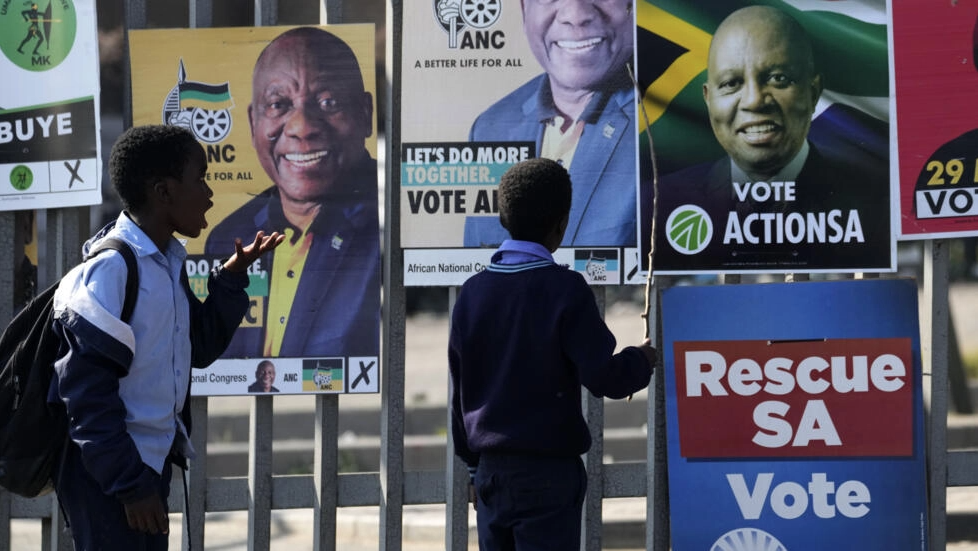The outcome of South Africa’s elections has significant implications for other African countries with long-standing ruling parties, writes Special Correspondent DOUGLAS RASBASH
In a historic turn of events, the African National Congress (ANC) of South Africa, which has been the dominant political force since the end of apartheid, lost its clear majority in last week’s election.
After garnering just 40% of the vote, the ANC now finds itself in an unprecedented position of needing a coalition to govern within two weeks. The Democratic Alliance (DA) secured 22% of the vote, placing them in second position, while the uMkhonto we Sizwe (MK) party, led by former president Jacob Zuma, captured 15%.
The radical Economic Freedom Fighters (EFF) obtained 9%, leaving the political landscape fragmented and requiring strategic alliances for stable governance.
Pivotal moment
The ANC’s inability to maintain a majority signifies a pivotal moment in South African politics. The ruling party’s dominance has been unchallenged for nearly three decades, but this election underscores the evolving political sentiment among South Africans who are increasingly demanding accountability, transparency, and efficient governance.
The decline in the ANC’s popularity can be attributed to various factors, including pervasive corruption, economic challenges, and dissatisfaction with public service delivery. This election marks a critical juncture, reflecting the resilience and functionality of South Africa’s democratic institutions.
The use of proportional representation has allowed for a more inclusive and representative outcome, ensuring that the diversity of political voices is heard within the legislature. As a result, the necessity for coalition politics is now at the forefront, compelling parties to negotiate, compromise, and collaborate to form a stable government.
Collaborative approach
This collaborative approach may lead to more balanced and holistic policy-making, reflecting a broader spectrum of public interests.
The ANC’s options for coalition partners are varied, each presenting distinct challenges and opportunities. The DA, traditionally the main opposition, with 22% of the vote, represents a more centrist, pro-business stance. A coalition between the ANC and the DA would require bridging significant ideological differences but could potentially stabilise the government and implement balanced economic reforms.
This partnership could appeal to a broad range of voters, fostering a sense of unity and shared purpose.
On the other hand, a coalition with the uMkhonto we Sizwe (MK) party, led by the controversial Jacob Zuma, would signal a shift towards more populist policies. Zuma’s leadership has been marred by accusations of corruption and mismanagement, and aligning with the MK party could potentially erode the ANC’s credibility further.
Land expropriation
However, based on the premise that MK took ANC votes, this partnership might consolidate the support of Zuma’s loyalists, providing a solid voter base.
The radical Economic Freedom Fighters (EFF), with their 9% share, advocates for far-left policies, including land expropriation without compensation and nationalisation of key industries. A coalition with the EFF could lead to more radical policy shifts, appealing to the disenfranchised and those seeking swift socio-economic change.
However, this could also polarise the electorate and create economic instability, deterring foreign investment and slowing growth.
The outcome of South Africa’s election has significant implications for other African countries with long-standing ruling parties. It demonstrates that even entrenched political entities can be held accountable through the ballot box, provided there is a robust democratic framework in place.
Equitable political discourse
The proportional representation system has ensured that the electorate’s diverse views are adequately represented, promoting a more equitable political discourse. Countries like Botswana, Zimbabwe, Angola and Uganda, where dominant parties have maintained power for extended periods, can draw valuable lessons from South Africa’s experience.
The critical takeaway is the importance of establishing and maintaining strong democratic institutions that facilitate free and fair elections. Ensuring an independent judiciary, a free press, and an empowered civil society are crucial components in this process.
Furthermore, the necessity of coalition politics in South Africa could inspire a move towards more inclusive governance models across the continent. This inclusivity can enhance political stability, as it requires power-sharing and consensus-building among diverse political actors.
Accountability and transparency
Such an approach can mitigate the risks of authoritarianism and foster a culture of accountability and transparency. South Africa’s recent election results represent a watershed moment in the nation’s democratic journey.
The ANC’s loss of majority power is a testament to the dynamic nature of democratic processes and the electorate’s power to demand change. This development encourages political maturity, pushing parties to work collaboratively towards the common good.
For other African nations, South Africa’s experience underscores the potential for democratic renewal and the importance of institutional resilience. By embracing proportional representation and coalition politics, African countries can enhance their democratic governance, ensuring a more inclusive and accountable political environment.

